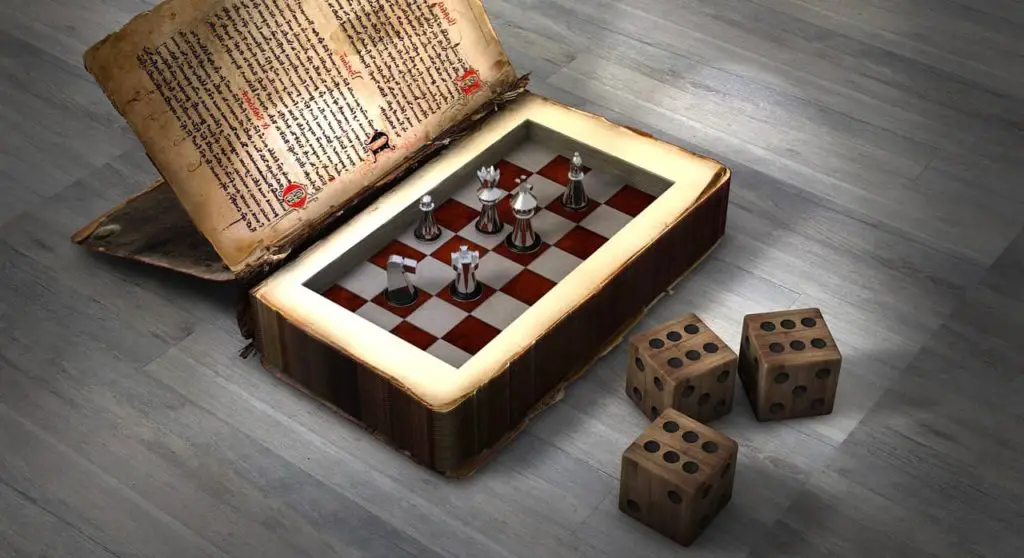How can you practice chess alone? (which actually works)
Chess by nature is a multiplayer-based game played by two people, but not always. Most people think that finding a partner is always the way to go.
I mean chess by itself needs two players but there are definitely interesting related activities that you can perform alone which I find really useful.
If you want to practice chess alone I’ve got your back! I will be sharing the things that I do and have observed other people do when they want to practice chess alone.
Personally, here is what I know:
There are various tasks you can do to practice chess alone, such as doing blindfold chess, guess the move, reading chess books, learning notations, following chess threads, and memorizing some chess games.
I know it sounds crazy but there are legitimate ways to practice chess on your own. I will share those ways here. To get started, here are the ways to practice chess alone:
1.) Recreate some famous positions
Simulating popular positions that properly expresses an important theme can be really productive.
It increases your familiarity with the concept which you can actually apply when encountering such in real games.
This could be fun too since you would get to choose the particular idea that would strengthen your weaknesses.
2.) Play a game of “guess the move”
This is a mini-game that I’ve come up with that involves having a full game (of someone) and blinding yourself to the actual moves that would be played.
You set the position and would try to guess the moves the player has made while comparing to the findings of your own.
I recommend choosing the games of top players in order for you to incorporate how these individuals think.
3.) Play a chess match on your own
This could seem really obvious and what most of us have tried at some point which is playing against yourself.
The learning that can be acquired from this can be doubtful I agree but that’s because people try to play full games.
Having a chess match against your own is only really useful for opening recollections which are remembering part of your repertoire.
4.) Play burst games
This is another segment that you could apply from having to make an opponent of yourself only with very fast movements.
When trying to think of the moves do not calculate and instead allow your intuition to take over.
One side will naturally come out at the top where you can spot interesting perspectives on your opening play.
5.) Do blindfold chess
Blindfold chess is an aspect of the game that is played in well, a sort of blindfold scenario.
There are no board or visual representations just your memory imagining the moves and the board.
This is greatly beneficial to improve your ability to familiarize with positions as quickly as possible
6.) Memorize some chess games
Memorizing chess games is an aspect that I don’t recommend you should focus on but is still undeniably important.
What you should memorize is the concept than the actual moves which would be helpful long term.
And since you are alone doing something is better than doing nothing, it is a step to success.
Side note: If you want to efficiently memorize chess games you should check out this helpful tutorial (will open in a new tab).
7.) Learn how to efficiently move the pawn/pieces
Few people don’t know this but moving the pieces deserves its own area of expertise.
Specifically when playing with faster time controls where swift movements are in need in such a short amount of time.
It can also complement the concept of the touch move rule since it would make you less likely to choose an unintended tile when accurately moving the pieces.
8.) Practice pushing the clock
As the same reason with the pieces the clock warrants its own time of practice.
Some chess clock models have really small buttons that make it harder to push which can possibly cause complications.
I myself found it really surprising how hard it is to push the clock in my first tournament, doing this can help you avoid that feeling.
9.) Practice reading/writing chess notations
Chess notation is the language used to indicate moves that occur in over the board play (but also online).
It is an essential component that every player will have to master at some point which is something you can accomplish alone.
Try viewing a full game and understand the notations or play your own game and write at the same time.
10.) Lay the Knight and play its patterns

The Knight is probably the most complex piece that every beginner will have some trouble learning.
It’s just hard to pick up its maneuverability during a fast paced game.
Instead I suggest you should do it alone so you could identify what intricacies of the L-shaped pattern that throws off your game.
11.) Play against an engine
An engine is the strongest chess entity that exists in the entire world but not all of them.
There are a lot of weaker computers that have inherent progressive (weaker to stronger) modes which can help you practice on your own.
Start with a level that you can handle then slowly move up the ladder to try overcoming stronger versions.
12.) Solve some chess puzzles
What an interesting chess activity that we’re all looking for? chess puzzles, and you can definitely do this without a partner.
Be wary of the implications of too much puzzles though since it can make you tactically volatile in real games.
However something is better than nothing and practicing with puzzles sharpens intuitional play/visualization.
13.) Study an opening of interest
Studying is an activity that can of course be done alone specifically and the topic I recommend are openings.
Now, there’s a moment in time where middlegame and endgames should be the utmost priority.
However when you’re alone it’s really just easier to enhance openings where you can memorize some lines even without a board.
14.) Analyze a particular theme
By theme I mean a specific idea (for example opposition) that you are likely to encounter in your games.
This can be a perfect substitute for studying openings since most surface-level players shouldn’t even be memorizing.
Themes can be fun too since they are engaging in a way that challenges your own thinking.
15.) Analyze your own games
Again, the biggest mistake that most players commit is not learning from their mistakes.
It is really tempting to try another game after losing one just to get the “rush” of the chess juices.
Open up your lichess/chess.com account and look at the game archives, use an engine and test your insights to figure out what you’ve done wrong.
16.) Read a chess book/e-book

Books have been around forever in the course of human history to accompany man in the pursuit of knowledge.
Of course there are other online alternatives that you can go for (which is okay) but chess books/e-books are usually more comprehensive.
Don’t get me wrong there are really deep stuff even on Youtube but books are just the more reliable option for informational materials.
17.) Watch engine matches
If you don’t know there is a recurring tournament between the best engines you can watch alone, which is another way to practice.
Although granted that you may probably not learn as much since it’s really hard to analyze games between engines (without a stronger engine yourself), it may just be what you’re looking for.
It may give you interesting ideas on the areas you’re lacking which you could conveniently apply.
18.) Watch games from top players
If you can absorb something useful in watching engine games you can absolutely do so in top human games.
In fact it may even be more helpful since you can actually relate to the intricacies a human is experiencing.
You don’t need an engine to observe in this type of matches (although it helps) the commentary may be enough to provoke understanding.
19.) Watch YouTube chess tutorials
Youtube is really an interesting place, it offers a lot of free educational chess content that is ripe for the taking.
It has a host too which can put their own recommendations that may be suitable for your needs.
I warn you about the dangers of this platform though; do not get sucked in into the void of youtube and end up wasting time.
20.) Follow chess threads
Chess forums are places where people of this interest gather together to share their sentiments.
The practicality of doing this can be dubious sure but there are definitely people that gain something from relating to others.
Plus you don’t really need much when doing this on your own since it only involves reading and commenting.
Final thoughts
Practicing chess alone can be a challenging dilemma that you need some experience to get around with.
Here are the things that I’ve observed other people do and I have tried myself just to give you an idea.
There are definitely a mountain of practices that can be accomplished in moments of solitude.
Try to find the one that works for you, Sleep well and play chess.
